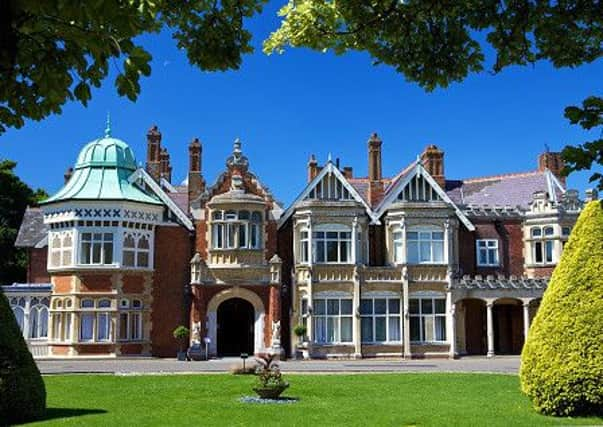Bletchley Park reactivated with planned National College of Cyber Security on site


The plans have been announced today by QUFARO – a new not-for-profit body created by leading experts working in cyber security including senior figures from Cyber Security Challenge UK; The National Museum of Computing; the Institute of Information Security Professionals; BT Security, and Raytheon.
QUFARO is designed to help deliver the cyber workforce necessary to protect British citizens and organisations against the increasing threat of cyber-attack.
Advertisement
Hide AdAdvertisement
Hide AdThe UK already boasts many successful programmes designed to identify and nurture upcoming cyber talent but they are often disconnected.
The gaps make it hard for rising cyber stars to chart an unbroken learning pathway from early-stage interest to qualification, employment and professional development.
QUFARO is designed to plug these gaps and act as a gateway both to existing options and new education and innovation opportunities, providing budding cyber defenders with a single point of access.
At the heart of QUFARO’s strategy is the creation of the UK’s first National College of Cyber Security. Based at the historic Bletchley Park site, students will be able to study in the very place where codebreakers famously cracked Nazi codes to aid British war efforts.
Advertisement
Hide AdAdvertisement
Hide AdOperational by 2018, the college will be a free-to-attend boarding school that will teach cyber skills to the UK’s most gifted 16-19-year-old prodigies, challenging and developing them into the top flight cyber security professionals of tomorrow.
As part of its remit, the college will select only the most talented and skilled students to attend. It will draw its syllabus from the individuals working at the forefront of the cyber security industry in the UK, and integrate this with modules in complementary subjects such as maths, computer science, and physics.
G-Block, one of the largest buildings on the Bletchley Park site, will house the National College. A £5m restoration project is already underway to sympathetically convert it into a pioneering security technology centre boasting some of the most advanced cyber test and demonstration facilities in the world.
By doing so, QUFARO will create a centrepiece of national cyber learning and a technical showcase in an iconic setting where organisations from across the country will be able to host events; train staff; and engage the wider public in the cyber agenda.
Advertisement
Hide AdAdvertisement
Hide AdIn addition to the National College, QUFARO will develop a series of new cyber security courses covering a range of learning opportunities that do not exist in the UK today.
These include teacher awareness and training programmes, and new virtual courses in the fundamentals of cyber security for those seeking a career change. The first of these new courses is already live. The Extended Project Qualification (EPQ) in cyber security is the UK’s first cyber qualification available for school pupils and independent learners wishing to study cyber between GCSE and university degree/vocational level.
At the same time as delivering its education programme, QUFARO will nurture new British cyber businesses with the launch of a £50m cyber innovation investment fund next year. The fund will support entrepreneurs and seek to stimulate the growth of innovative new information security businesses, growing technological excellence, sovereign capabilities and the contribution the cyber security industry makes to our national GDP.
Those keen to register their interest in any of the QUFARO programmes can visit the organisation’s website to receive regular progress updates and information about opportunities to engage with the QUFARO team.